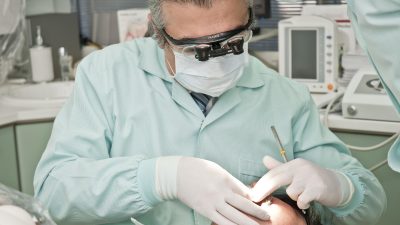And How to Fix Them?
Washing your face is a daily habit, but are you doing it the right way? Many people unknowingly make mistakes that can harm their skin. Learn the 10 most common face-washing mistakes and discover the best practices for healthy, glowing skin.
Introduction
Your skincare routine is the foundation of healthy, radiant skin. But what if your face-washing habits are doing more harm than good? Using the wrong products, skipping important steps, or being too harsh can lead to irritation, breakouts, premature ageing, and even long-term skin damage.
To help you achieve the best skincare results, we’ve compiled the top 10 mistakes people make when washing their face—and how to fix them.
1. Using Products That Aren’t Meant for Your Skin Type
Before choosing a cleanser, you need to know your skin type—is it normal, dry, oily, combination, or sensitive? Using the wrong product can worsen your skin issues.
- If you have dry skin, using a cleanser for oily skin can strip away essential oils.
- If you have oily skin, using a hydrating cleanser may not control excess oil production.
Solution: Always read product labels and choose skincare tailored to your specific skin type.
2. Not Washing Your Hands Before Washing Your Face
Your hands touch doorknobs, keyboards, phone screens, and money, collecting thousands of bacteria throughout the day. If you wash your face with unclean hands, these germs can transfer to your skin and clog pores.
Solution: Wash your hands thoroughly with soap before touching your face.
3. Using Water That’s Too Hot or Too Cold
- Hot water can damage blood vessels, cause redness, and strip the skin of its natural oils.
- Cold water doesn’t cleanse your face effectively, leaving behind dirt and impurities.
Solution: Use lukewarm water—it’s gentle, effective, and maintains your skin’s natural balance.
4. Not Removing Makeup Before Cleansing
If you go straight to washing your face without removing makeup, you’re not truly cleansing your skin.
Solution:
- Use micellar water or a gentle makeup remover with a cotton pad.
- Spend at least 10 seconds removing eye makeup to avoid tugging at delicate skin.
5. Over-Exfoliating Your Skin
Your skin naturally sheds 35,000 dead cells every hour—you don’t need to scrub aggressively to exfoliate.
- Excessive exfoliation can lead to redness, irritation, and even premature ageing.
- It can strip the skin’s protective barrier, causing oiliness or dryness.
Solution: - Use an exfoliant with enzymes or mild acids instead of harsh scrubs.
- Exfoliate 2-3 times a week for normal skin, or once a week if you have sensitive skin.
6. Drying Your Face with a Bacteria-Filled Towel
Towels, especially in moist bathrooms, are breeding grounds for bacteria. Even if you have a towel dedicated to your face, it may still be harsh and unhygienic.
Solution:
- Instead of a towel, use disposable tissues or paper towels.
- If using a towel, make sure it’s clean, soft, and washed frequently.
7. Using a Harsh Toner
Many toners contain alcohol, which can dehydrate and irritate the skin. Even if you have oily skin, alcohol-based toners can trigger excess oil production as your skin tries to compensate for dryness.
Solution: Choose an alcohol-free toner that suits your skin type.
8. Skipping Serums in Your Routine
Serums contain highly concentrated active ingredients that penetrate deep into the skin. They help with:
- Premature ageing
- Redness and inflammation
- Dehydration and acne
Solution: Apply a serum right after toning, before your moisturiser.
9. Forgetting to Apply SPF
Many people skip sunscreen unless they’re outdoors, but UV rays can harm your skin even indoors.
- Sun exposure can cause premature ageing, hyperpigmentation, and even skin cancer.
Solution: Use an SPF 30+ sunscreen daily, even on cloudy days.
10. Ignoring the Ingredients in Your Skincare Products
Some skincare products clog pores and contain irritants that damage your skin.
Avoid:
- Oily, comedogenic moisturisers that clog pores.
- Fragrances and alcohol if you have sensitive skin.
- Harsh chemicals that strip away natural oils.
Look for: - Antioxidants like green tea, chamomile, pomegranate, or licorice root.
- Hyaluronic acid and glycerin for hydration.
Final Thoughts
Your skin takes 28 days to renew itself, so be patient with your skincare routine. Follow these tips consistently, and you’ll notice a visible improvement in your skin’s health.
Bonus Tip:
For a natural glow, drink plenty of water and eat nutrient-rich foods while avoiding excess sugar, sodium, and fried foods.
What’s Your Skincare Routine?
Do you follow these face-washing best practices? Share your skincare tips in the comments! If you found this guide helpful, share it with your friends and subscribe for more skincare insights!




